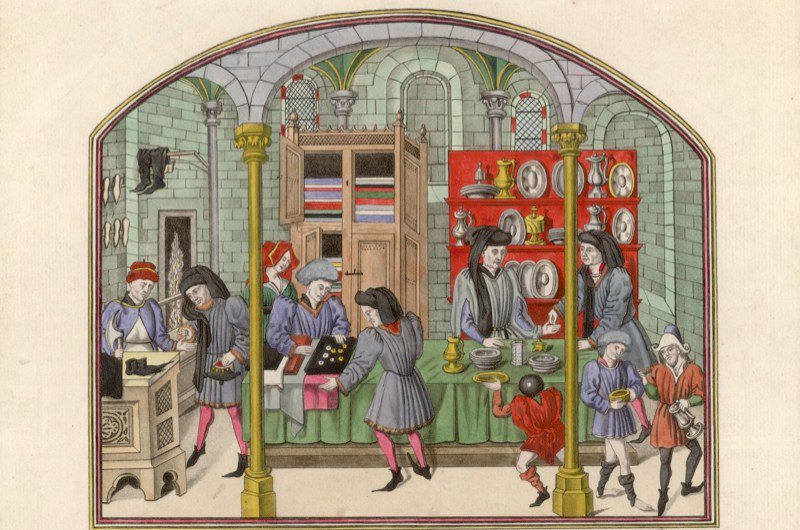Religion and science may seem like two completely different worlds with nothing in common, but there are actually many surprising connections between them. For instance, religious beliefs may have helped humans survive and thrive. Science and religion may use different methods, but they both try to answer fundamental questions about existence. The Vatican has an observatory to study science and the cosmos, and religious beliefs can shape scientific discoveries in fascinating ways. Moreover, both fields have had a mutually beneficial relationship throughout history. In conclusion, religion and science are not enemies, and acknowledging their similarities can help us appreciate their unique contributions to our understanding of the world.
10 Surprising Facts About Religion and Science
Religion and science are often viewed as opposing forces in our society. However, there are many surprising connections and similarities between these two seemingly disparate fields of study. Here are 10 surprising facts about religion and science:
1. Religious beliefs may have helped humans survive and thrive
According to a study published in the journal “Psychological Science,” religious beliefs may have helped humans survive and thrive throughout history. Researchers suggest that religious beliefs may have helped build stronger communities, provide comfort during times of crisis, and promote greater cooperation between individuals.
2. Science and religion both attempt to answer fundamental questions about existence
While religion and science use different methods to explore the world around us, they both attempt to answer fundamental questions about existence. Both fields seek to understand our place in the universe, the origin of life, and the purpose of our existence.
3. The Vatican has an observatory to study science and the cosmos
The Vatican has an observatory located in Castel Gandolfo, Italy, which is used to study science and the cosmos. The observatory is staffed by Jesuit scientists who work alongside other astronomers to study a wide variety of scientific topics. This observatory is proof that science and religion can coexist and even work together.
4. Religious beliefs can shape scientific discoveries
Religious beliefs can shape scientific discoveries in surprising ways. For example, some scholars argue that belief in an ordered and rational universe helped spur the development of modern science. Similarly, some scientists have argued that their religious beliefs have provided them with insights and inspiration for their scientific work.
5. Science and religion have had a mutually beneficial relationship
Despite the popular caricature of science and religion as opposing forces, the two fields have had a mutually beneficial relationship throughout history. For example, many early scientists were also deeply religious and sought to uncover the mysteries of the natural world as a way of understanding God’s creation.
6. There are scientific explanations for some religious experiences
There are scientific explanations for some religious experiences, such as the feeling of being in the presence of a divine being. Some researchers believe that these experiences are caused by certain areas of the brain being activated, and that these feelings can be replicated through manipulation of chemicals and electrical signals in the brain.
7. Religious beliefs can influence ethical decisions in science
Religious beliefs can have a significant impact on ethical decisions made in science. For example, many religious beliefs advocate for the protection of the environment, which has led to increased efforts to reduce pollution and conserve natural resources.
8. Some biblical stories have scientific parallels
Some biblical stories have scientific parallels that may have been unknown to the original authors. For example, the story of the Great Flood found in the book of Genesis has many similarities to flood myths found in cultures around the world. Some scholars believe that these myths may be based on actual historical events, such as the flooding of the Black Sea around 7,500 years ago.
9. Science and religion can both help us cope with difficult experiences
Science and religion can both provide comfort and help us cope with difficult experiences. For example, the placebo effect, which is well-documented in scientific research, suggests that the beliefs and expectations of individuals can have a powerful effect on their health and well-being. Similarly, religious beliefs can provide comfort during times of crisis and help individuals find meaning and purpose in life.
10. Religion and science are not necessarily incompatible
Ultimately, religion and science are not necessarily incompatible. Both fields offer unique ways of understanding the world around us, and there are many examples of individuals and communities that have successfully integrated their religious beliefs with scientific knowledge.
Conclusion
The relationship between religion and science is complex and multifaceted. While these two fields are often viewed as opposing forces, there are many surprising connections and similarities between them. By understanding these connections, we can gain a deeper appreciation for the ways in which religion and science can complement each other and help us better understand our place in the world.
